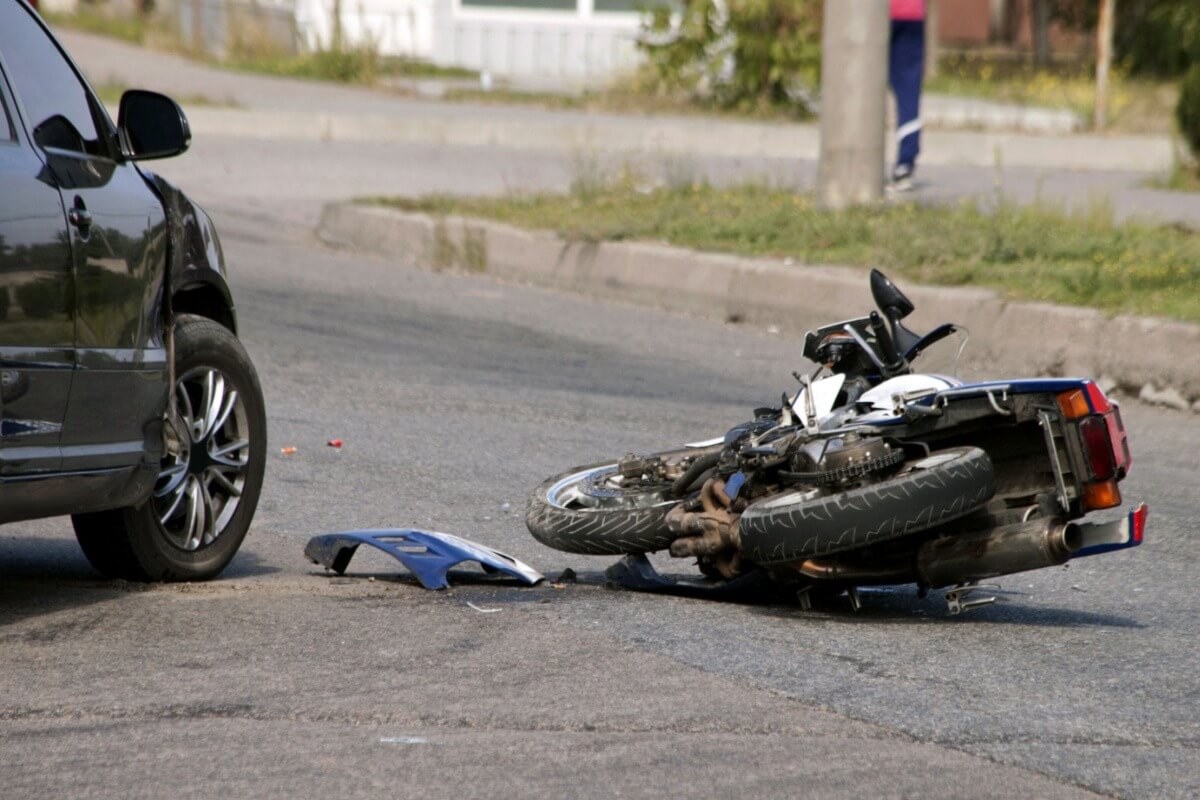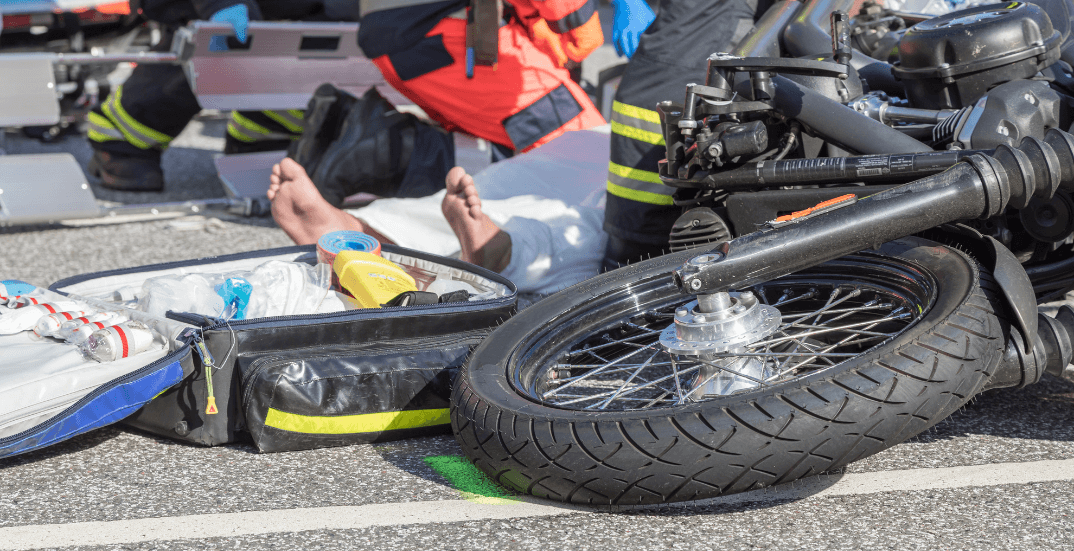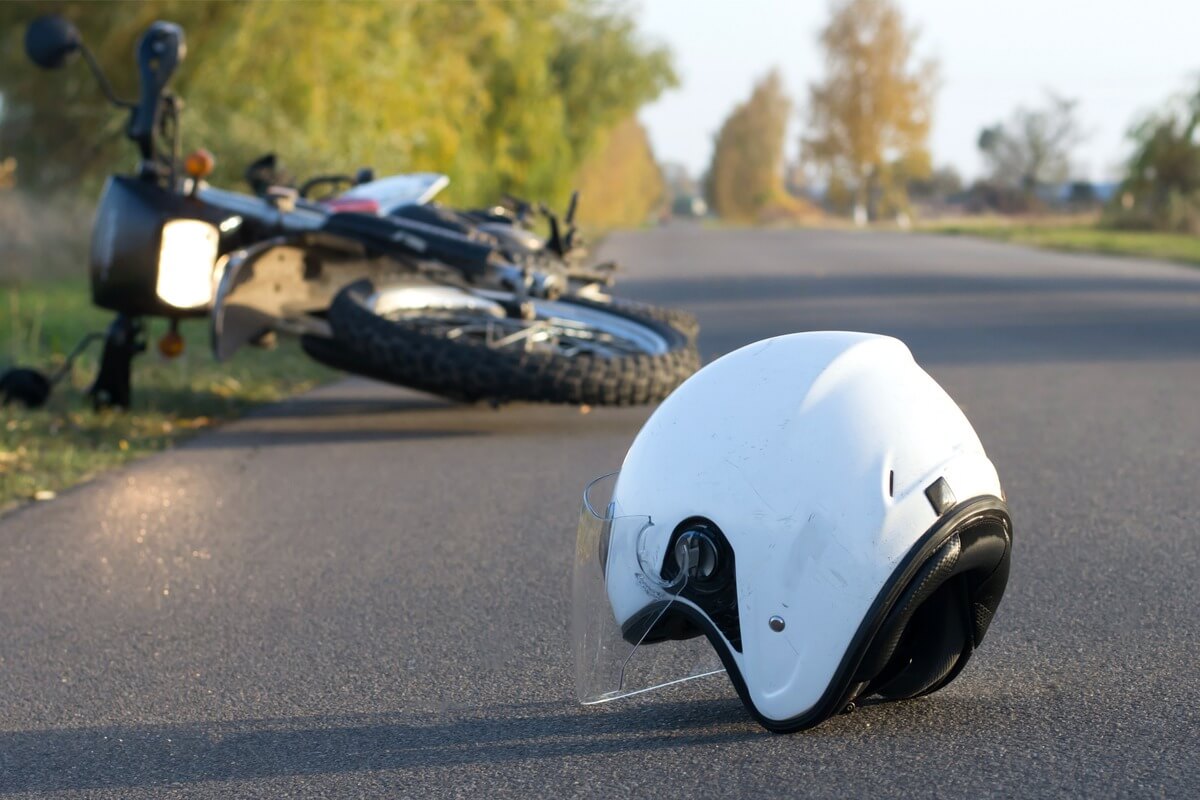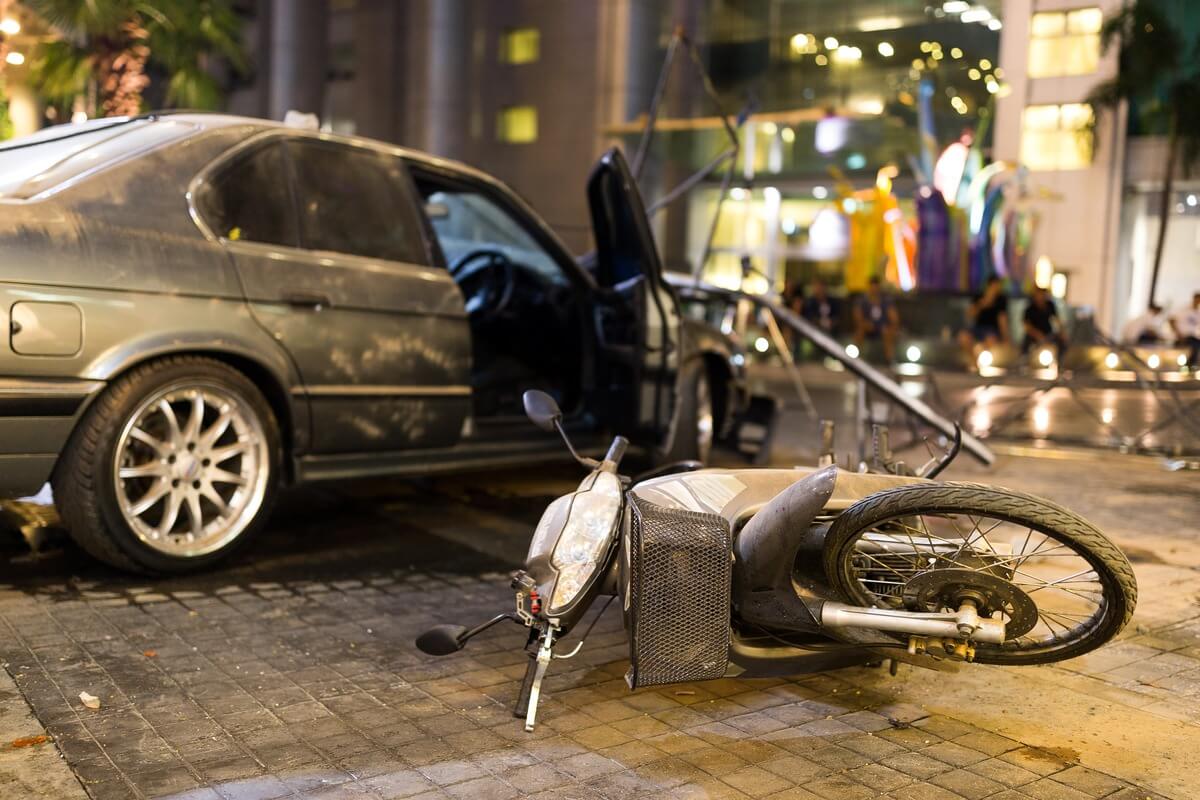
Associate at AKD Lawyers
Practice Areas: Personal Injury, Workers Compensation

Motorcycle accidents can cause devastating injuries, especially when riders aren’t wearing helmets. In Louisiana, motorcycle helmets are not just recommended—they’re required by law. But what happens if you’re injured in a crash while not wearing one? Are you completely barred from getting compensation?
The short answer is no, but the whole picture involves understanding how Louisiana law treats helmet use, fault, and compensation. In this post, we’ll walk you through everything you need to know if you were involved in a motorcycle accident without a helmet and what it could mean for your personal injury claim.
Louisiana’s Helmet Law: What You Need to Know
Louisiana has one of the strictest motorcycle helmet laws in the country. According to Louisiana Revised Statute § 32:190, every motorcyclist and passenger is required to wear a helmet that complies with safety regulations.
The law is enforced across the state and applies to all motorized cycles, including mopeds and scooters.
Louisiana Revised Statute 32:190 requires all motorcycle riders and passengers to wear a helmet that meets safety standards.
The state’s stance on helmets hasn’t always been consistent. In 1968, Louisiana required helmets for all riders. That changed in 1976 when the law only applied to those under 18.
It was reinstated in 1982, then revised again in 1999 to exempt those over 18 with $10,000 in medical coverage. Finally, in 2004, the state returned to a universal helmet requirement.
Understanding Comparative Fault in Louisiana
Louisiana follows a comparative fault system, which means more than one person can be held responsible for an accident.
Under the Civil Code Article 2323, if you’re partially at fault for your injuries, your compensation can be reduced by the percentage of your fault.
For example, if you’re awarded $100,000 in damages but found 20% at fault because you didn’t, your compensation may be lowered to $80,000 if you wear a helmet.
Under Louisiana Civil Code Article 2323, an injured party’s compensation may be reduced in proportion to their percentage of fault, including failure to follow safety laws like mandatory helmet use.
This system doesn’t automatically disqualify you from recovering compensation. However, insurance companies may argue that not wearing a helmet increased the severity of your injury, making you partially responsible for your harm.
How Not Wearing a Helmet Can Affect Compensation
Not wearing a helmet during a motorcycle crash doesn’t prevent you from filing a claim, but it can complicate the outcome.
If the injury you sustained is something a helmet could have helped prevent—like a skull fracture or traumatic brain injury—the opposing party may argue that you contributed to your harm.
Whether this argument holds weight depends heavily on the specific facts of your case, including the nature of your injuries and available medical evidence.
Medical experts are often called in to testify whether a helmet would have reduced the severity of injuries. In some situations, like open head wounds, the link between helmet use and injury severity is clearer.
However, proving that a helmet would have changed the outcome can be more difficult for closed head injuries.
Helmet Use and Head Injury Risk: What the Numbers Say
The National Highway Traffic Safety Administration (NHTSA) has long emphasized the importance of helmet use in motorcycle safety.
Their studies have shown strong evidence that helmets greatly lower the chance of fatalities and severe injuries.
According to the National Highway Traffic Safety Administration (NHTSA), helmet use decreases the chance of death by 37% and the possibility of a head injury by 69%.
A 2004 NHTSA study found that after Louisiana repealed its universal helmet law in 1999, helmet use declined by 50%, serious injuries rose by 40%, and fatalities increased by 75%.
Let’s break this down in the table below:
Impact of Helmet Use on Motorcycle Accident Outcomes
|
Factor |
With Helmet |
Without Helmet |
| Risk of Head Injury | Lower (by 69%) | Significantly Higher |
| Risk of Fatality | Lower (by 37%) | Substantially Higher |
| Average Medical Costs (per incident) | Lower | Higher |
| Legal Liability Impact | Reduced | Possibly Increased |
Wearing a helmet doesn’t just protect your health—it can also protect your legal claim by reducing your share of comparative fault.
When Not Wearing a Helmet May Not Affect Your Case
There are many motorcycle injuries that helmets don’t impact. If you break your leg, injure your back, or suffer internal injuries in a crash, helmet use likely won’t be a relevant factor in your claim.
Head injuries may be more life-threatening, but injuries to extremities are the most common type of motorcycle injury, and wearing a helmet does not provide any protection for arms and legs.
In such cases, the defense can’t argue that your choice not to wear a helmet contributed to those injuries. Your ability to seek full compensation would remain intact unless other factors increase your share of fault.
It’s important to remember that the burden of proof is on the defense. They must show that your injuries were made worse solely because you weren’t wearing a helmet. That’s not always easy to prove, especially without clear medical evidence.
Legal Support for Injured Motorcyclists in Louisiana
If you’ve been injured in a motorcycle crash, especially if you weren’t wearing a helmet, your case might involve complex legal arguments and medical evaluations.
That’s why it’s essential to consult with an attorney experienced in motorcycle accident claims in Louisiana.
Your lawyer will work to:
- Collect and preserve medical evidence.
- Push back against exaggerated fault claims.
- Present expert testimony to support your side.
- Negotiate with insurance companies for fair compensation.
Frequently Asked Questions
Can I still file a motorcycle accident claim in Louisiana if I wasn’t wearing a helmet?
Yes. Louisiana law allows injured motorcyclists to seek compensation even if they weren’t wearing a helmet. However, your compensation may be reduced based on comparative fault.
How does not wearing a helmet affect my injury claim?
It can impact your claim if your head injury could have been prevented or lessened with a helmet. Courts may reduce your compensation accordingly.
Does the insurance company automatically deny claims if I wasn’t wearing a helmet?
No. Insurance carriers often try to minimize payouts, but they must prove that helmet non-use contributed significantly to the injury to justify a reduction.
What if my injuries weren’t to my head, like a broken leg or back injury
If your injuries are unrelated to your helmet use, the helmet law likely won’t affect your compensation eligibility.
What is Louisiana’s helmet law for motorcycle riders?
Under LA Rev Stat § 32:190, all motorcycle riders and passengers must wear approved helmets. Violating this law could impact your claim in certain circumstances.
Conclusion
Not wearing a helmet in a motorcycle accident may affect how much compensation you can recover, but it doesn’t block you from filing a personal injury claim in Louisiana.
Courts will look at whether helmet use would have made a difference in the type or severity of your injuries. In many cases, especially when head trauma isn’t involved, the impact may be minimal or nonexistent.
At Alvendia, Kelly & Demarest Accident Injury Lawyers, our staff has extensive experience managing claims related to motorbike accidents in New Orleans.
Categories

In 2003, after being dissatisfied with the quality of legal care for victims of car accidents, Roderick ‘Rico’ Alvendia sought to establish a new firm focused on providing high-quality legal services to aid injured victims and their families. J. Bart Kelly, sharing Rico’s passion for upholding justice, joined the firm later that year, and established a partnership.








